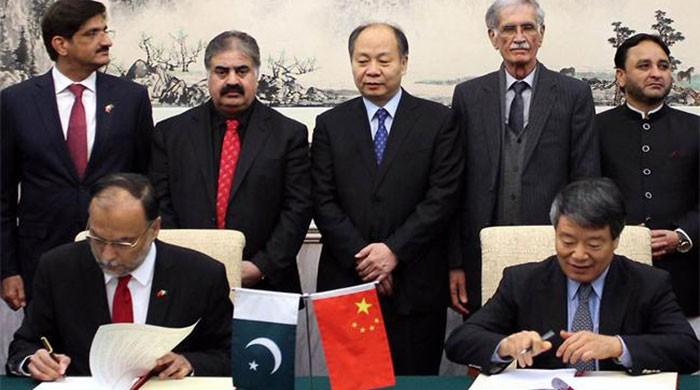CPEC Phase II Launched at 14th JCC Meeting

New Phase of China-Pakistan Economic Corridor
Planning Minister Ahsan Iqbal recently emphasized a new phase of cooperation under the China-Pakistan Economic Corridor (CPEC) during a media interaction session in Beijing. He highlighted that both countries have officially launched CPEC Phase II, marking a significant milestone in their long-standing partnership.
Following the 14th Joint Cooperation Committee (JCC) meeting on CPEC, the minister explained that CPEC Phase II aligns with Pakistan's Five Es Framework. This framework aims to transform Pakistan into a $1 trillion economy by 2035. The focus areas include exports, equity, environment, energy, and e-governance, ensuring a comprehensive approach to economic development.
The minister outlined five specialized corridors that will shape the initiative's future. These include:
- Growth Corridor: Aimed at boosting exports, job creation, and economic expansion.
- Livelihoods Corridor: Targeting poverty alleviation and socio-economic uplift in underdeveloped regions.
- Innovation Corridor: Shifting from traditional projects to enterprise, research, and technology, including the creation of a Pakistan-China 'digital silk route'.
- Green Corridor: Prioritizing renewable energy, sustainable growth, and climate resilience, especially in response to recurring floods.
- Open and Regional Connectivity Corridor: Expanding transport infrastructure, linking Pakistan with Afghanistan and Central Asia, and extending connectivity benefits beyond the two countries.
People-Centric Approach and Youth Development
CPEC Phase II is described as people-centric, with a strong emphasis on youth and education. Pakistan has proposed training 10,000 Ph.D. scholars in China's top universities over the next decade, focusing on fields such as artificial intelligence, engineering, and emerging sciences. The goal is for Pakistan to evolve into a $3 trillion, technology-driven economy by 2047.
Vocational and technical training will be expanded in collaboration with Chinese institutions to equip Pakistan's young workforce with practical, employment-oriented skills. This initiative is expected to create a skilled labor force capable of meeting the demands of a modern economy.
Innovation and Sustainable Development
Both sides have agreed to establish joint laboratories in artificial intelligence and quantum computing. Additionally, a 'Future Skills Program' covering IT, robotics, fintech, and biotechnology will be launched. Climate-smart agriculture projects are also planned as part of the initiative.
Cooperation will further extend to realigning the Karakoram Highway, developing a mineral corridor in Balochistan, and enhancing multi-modal transport links with Central Asia. These efforts aim to improve infrastructure and facilitate trade across the region.
Business-to-Business Collaboration
The minister stressed that CPEC Phase II will increasingly shift from government-to-government to business-to-business collaboration. Following Prime Minister Shehbaz Sharif's recent visit to Beijing, where $8.5 billion worth of agreements were signed at a business forum, Pakistan has set up dedicated facilitation desks and eased visa processes to attract Chinese investment.
Security and Partnership
Pakistan has reiterated its commitment to the safety of Chinese nationals, referring to them as guests treated like family. Any security incidents, according to the minister, are attributed to foreign-sponsored elements aiming to undermine bilateral cooperation. Both nations are determined to counter such threats together.
Strengthening Bilateral Ties
The minister emphasized the unique nature of the Pakistan-China partnership, stating that their friendship "has never seen an autumn; it has always blossomed like spring." He highlighted that Pakistan's close ties with China do not come at the expense of other partners.
Reflecting on the achievements of CPEC's first decade, the minister noted that it transformed Pakistan's infrastructure. Looking ahead, he stated that the next phase will focus on transforming lives, bringing jobs, innovation, and hope for a more advanced and inclusive economy.
Comments
Post a Comment